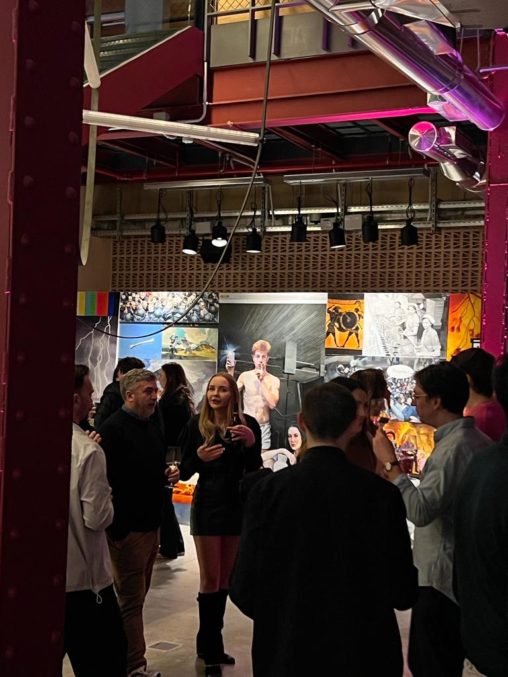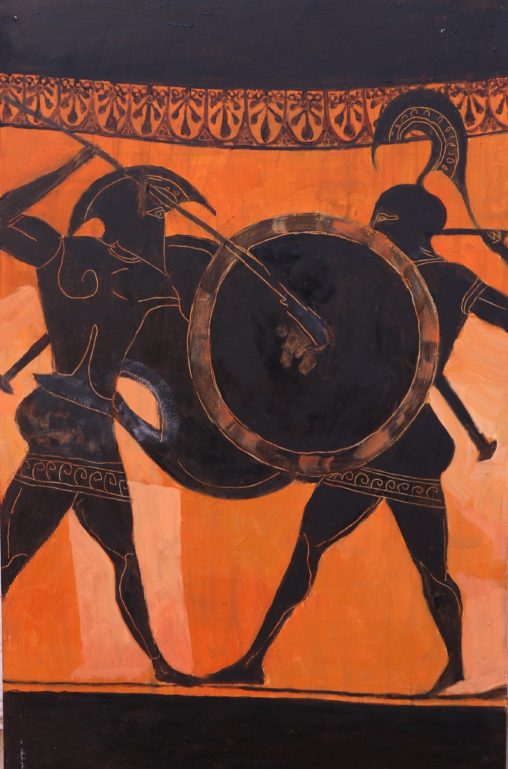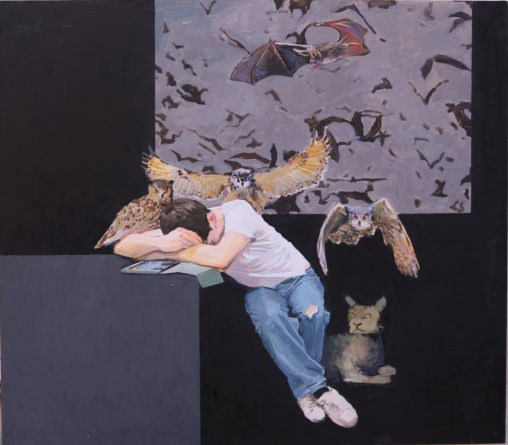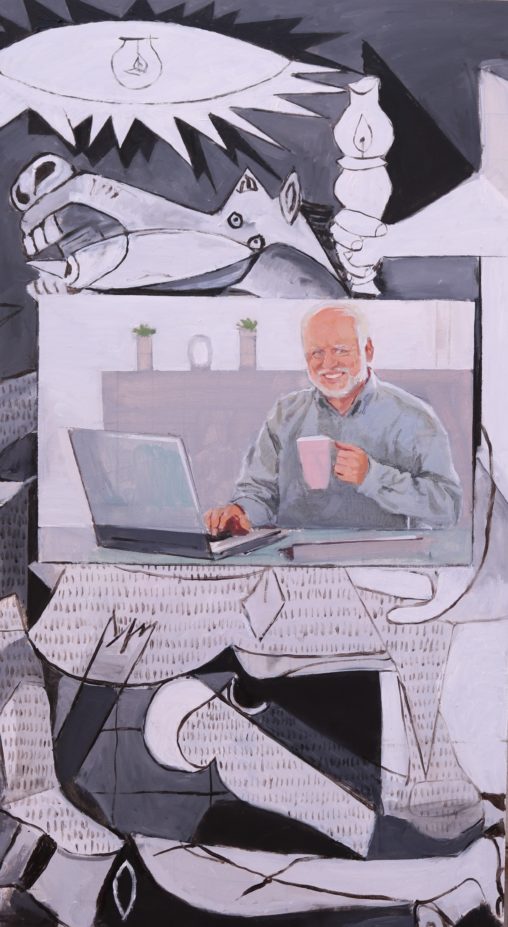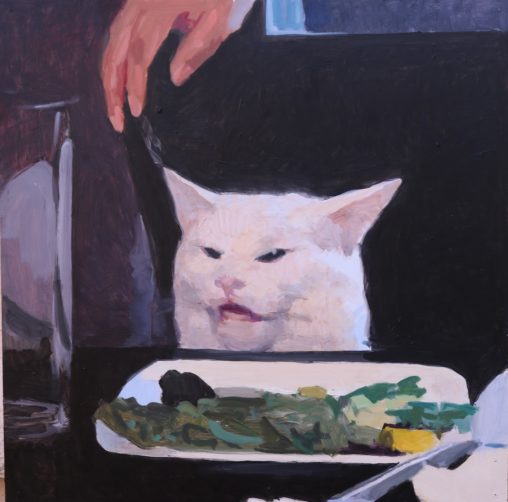Categoría: La falsa promesa (The False Promise)
ESP/ENG
Los mitos son potentes relatos que, además de reforzar la identidad de la cultura en la que se insertan, pueden servir para explicar el mundo y la naturaleza humana.
Nuestra investigación pretende ahondar en el imaginario mitológico griego, como precursor y co-formador de la cultura occidental, para extraer una serie de relatos que puedan ser reinterpretados desde la producción pictórica, con una visión contemporánea, a través de una estética digital y usando elementos icónicos propios de las redes sociales, y mediante la creación de grandes polípticos a modo de multipantalla y en clara alusión al retablo religioso, para resaltar el magnetismo y el aurático espacio que ocupan estos mitos en nuestro patrimonio cultural-identitario y, a la vez, aludir a la idea de la representación de la realidad a través del cuadro-ventana-pantalla.
La falsa promesa relata la historia de la inocente creencia de la Ilustración de que el progreso científico y tecnológico nos haría más libres y más felices.
El siglo XX ha demostrado con creces que esta promesa ilustrada resulta falsa. Tal vez vivamos más cómodos, pero no necesariamente más libres ni felices.
El progreso tecnológico nunca ha venido acompañado de un progreso ético y humanitario, y de ello habla el mito griego de Prometeo, el titán que robó el fuego olímpico a los dioses, metáfora del progreso, y se lo entregó a los hombres. En consecuencia, Zeus castigó a la humanidad creando a Pandora y haciendo que ésta abriera su peligrosa jarra.
La falsa promesa fue expuesta en The Social Hub Madrid entre el 10 y el 26 de febrero del 2023.
.
Myths are powerful tales that, besides reinforcing the identity of the culture of which they form a part, can help to explain the world and human nature.
Our research aims to study the Greek mythological imagination as the precursor and contributor to Western culture to extract a series of tales that can be re-interpreted as visual art, with a contemporary vision, through digital aesthetics. For this we used the iconic elements belonging to the social networks and creating large polyptychs in the form of multi-screens in a clear allusion to religious altarpieces to underline the magnetism and auratic space occupied by these myths in our cultural heritage, while at the same time alluding to the representation of reality through the picture-window- screen.
The False Promise tells the story of the innocent conviction of the Enlightenment that the scientific and technological progress would make us freer and happier.
The 20th century has amply proved that this enlightened promise is false. Perhaps we live more comfortably, but not necessarily freer and happier.
The scientific progress has never been accompanied by an ethical and humanitarian progress. This is what the Greek mith about Prometheus relates. The titan stole the olympic fire from the gods, which is the metaphor of progress, and gave it to the men. As a consequence, Zeus punished the humankind creating Pandora and making her open her dangerous jar.
The False Promise was exhibited at The Social Hub Madrid from February 10th to 26th, 2023.

